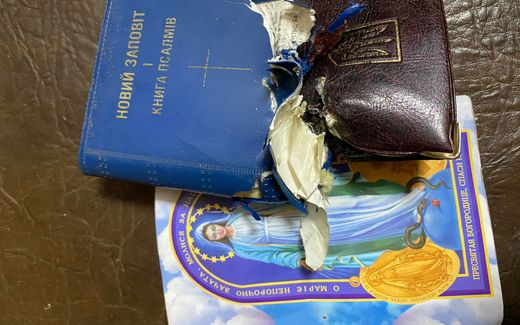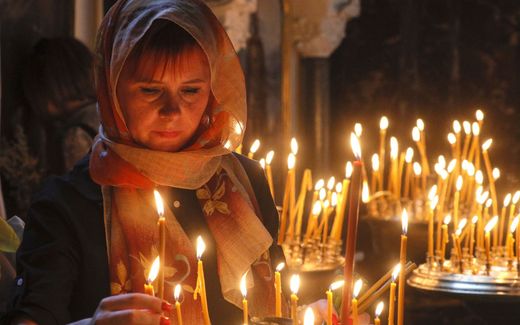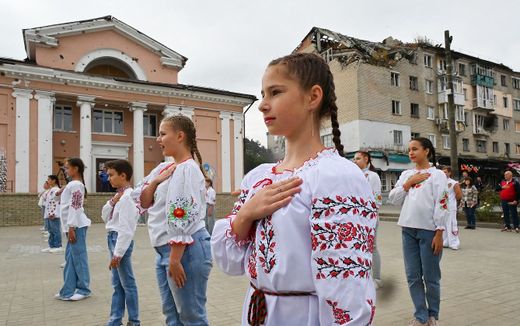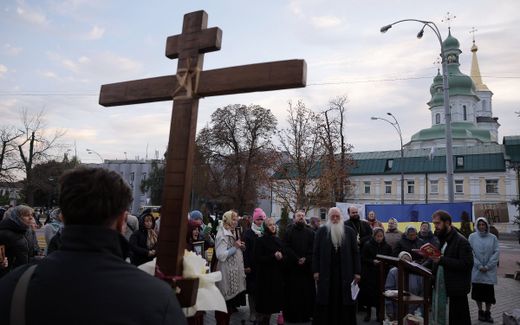More than 500 Ukrainian churches are destroyed by war violence
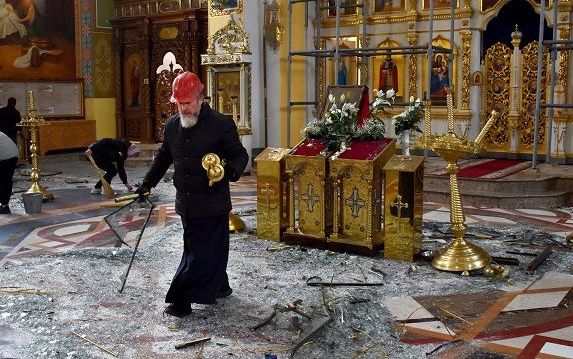
An Orthodox priest collects religous objects as others clear up glass and debris inside a cathedral damaged after missile strikes. Photo AFP, Andriy Andriyenko
Eastern Europe
More than 500 Ukrainian churches are destroyed by war violence
Broken windows, blackened icons and a collapsed roof characterise the Holy Intercession Cathedral in Zaporizhzhia since August 10. That day, the building was hit by a Russian missile.
Since the start of the Russian invasion in February 2022, more than 500 churches have been severely damaged by war violence.
That is shown by the research project "Churches under fire". The goal of the project was documenting the "destruction of cultural heritage to bring the Russian Federation to justice for this war crime in the future, Iryna Lysenko said during a press conference. Lysenko is the head of the project, Risu.ua writes.
"Churches under Fire" included an online platform where photos and videos could be collected of damaged and destructed churches, Lysenko explained during the press conference. The information also comes from local witnesses to the war violence that "affects all denominations, not only the Ukrainian Orthodox Church (Moscow Patriarchate) or the Orthodox Church of Ukraine".
The scientific consultant that was involved in the research, religious expert Yuriy Chornomorets, called the destruction of the churches "barbaric" during the press conference. He emphasised that the Ukrainian army attempts to save churches from violence by not taking position next to them.
Roksolana Makar believes that Ukraine has the full right to "demand justice in international courts" for the "enormity of what the Russian military is doing to Ukrainian churches and Ukrainian cultural monuments in general. Makar is a specialist in documenting heritage for criminal proceedings.
She realises that it will be a long legal process, which can even take up to ten years. At the same time, she points out that the current documentation of violence against churches is happening according to international methodology.
Experts select buildings that can serve as indisputable proof that the Russian military "really committed crimes against cultural heritage during the war", Risu.ua writes. This "evidence" is then prepared so it can be used in legal cases before international courts.
Related Articles


